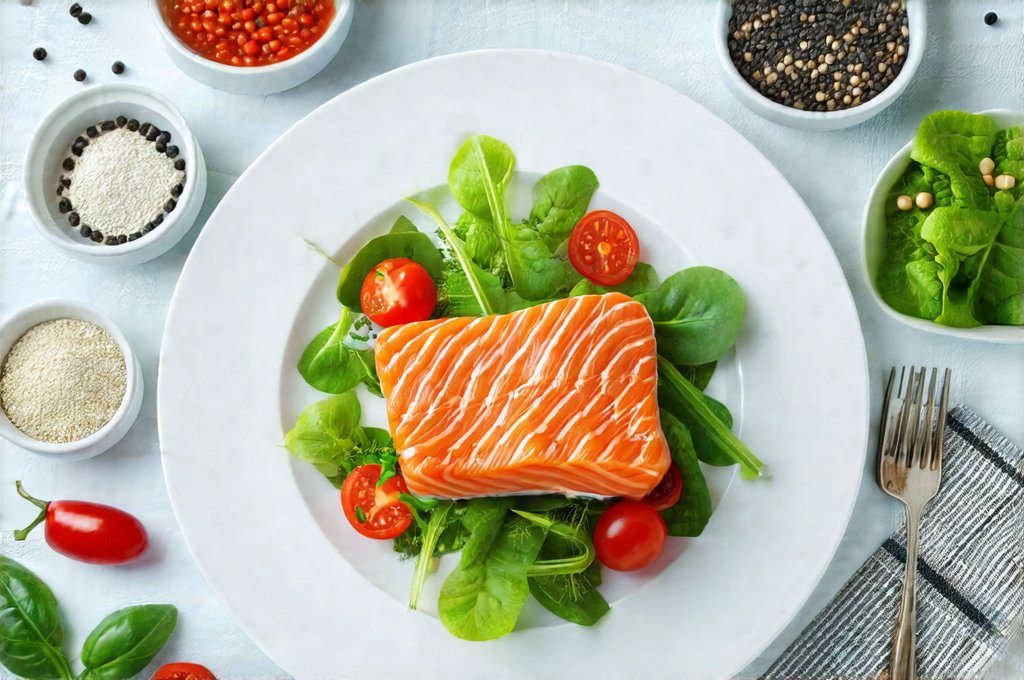Many individuals focus intensely on weight loss, but for some, gaining healthy weight is a significant challenge. This isn’t always about aesthetics; it can be crucial for athletes needing to improve performance, individuals recovering from illness, or those simply struggling with being underweight and experiencing related health concerns like weakened immunity or fatigue. A carefully planned high-calorie diet isn’t about mindless indulgence—it’s about strategically increasing your caloric intake with nutrient-rich foods to support overall health and achieve a desired weight gain in a sustainable way. It requires understanding your body’s needs, choosing the right types of calories, and consistently implementing a well-structured eating plan.
The misconception often surrounding high-calorie diets is that they encourage unhealthy habits or lead to simply gaining fat. This isn’t necessarily true. The goal is not just quantity but quality. A healthy weight gain strategy prioritizes nutritious foods that provide essential vitamins, minerals, and macronutrients—proteins, carbohydrates, and fats—needed for growth, repair, and energy levels. It’s about fueling your body effectively, not just packing it with empty calories. Ignoring nutritional value can lead to imbalances and may even negatively impact health despite the weight gain.
Understanding Calorie Surplus & Macronutrient Balance
A high-calorie diet fundamentally relies on creating a caloric surplus. This means consistently consuming more calories than your body burns throughout the day. Your basal metabolic rate (BMR) – the amount of energy your body uses at rest – and your activity level determine how many calories you burn daily. To gain weight, you need to exceed this expenditure. Generally, a surplus of 250-500 calories per day can lead to a healthy weight gain of approximately 0.25-0.5 kg (or about half a pound to one pound) per week. It’s important to start with a modest surplus and adjust as needed based on your individual response and goals.
However, simply adding calories isn’t enough. Macronutrient balance is crucial. Protein is vital for muscle repair and growth – aiming for 1.6-2.2 grams per kilogram of body weight is often recommended for those actively trying to gain weight. Carbohydrates provide energy for workouts and daily activities; choose complex carbohydrates like whole grains, fruits, and vegetables over refined sugars. Healthy fats are essential for hormone production, nutrient absorption, and overall health – incorporate sources like avocados, nuts, seeds, and olive oil into your diet. Ignoring any of these macronutrients can hinder progress or lead to an unbalanced nutritional profile.
The type of calories you consume matters just as much as the quantity. Focusing on whole, unprocessed foods ensures that you’re getting essential nutrients alongside the extra calories. Avoid relying heavily on sugary drinks, processed snacks, and unhealthy fats, which offer minimal nutritional value and can negatively impact health. Prioritize nutrient-dense options to maximize both weight gain and overall well-being.
Strategies for Increasing Caloric Intake
Increasing your caloric intake doesn’t have to be daunting. There are several practical strategies you can implement into your daily routine:
- Increase Meal Frequency: Instead of three large meals, try eating five or six smaller meals throughout the day. This makes it easier to consume more calories without feeling overly full or uncomfortable.
- Add Calorie-Dense Foods: Incorporate foods that provide a lot of calories in small portions. Examples include:
- Nuts and seeds (almonds, walnuts, chia seeds)
- Dried fruits (raisins, dates, apricots)
- Avocados
- Nut butters (peanut butter, almond butter)
- Healthy oils (olive oil, coconut oil)
- Boost Portion Sizes: Gradually increase the portion sizes of your existing meals. Start with small increments to avoid digestive discomfort and allow your body to adjust.
Beyond these strategies, consider adding calorie boosts to your current meals. For example, you can add a tablespoon of olive oil to your vegetables or sprinkle nuts on top of your cereal. Smoothies are also an excellent way to pack in extra calories—blend fruits, yogurt, protein powder, and healthy fats for a quick and convenient meal replacement. Consistency is key; make small, sustainable changes that you can maintain over the long term.
Hydration & Digestive Support
Staying adequately hydrated is often overlooked when focusing on caloric intake, but it’s vital for optimal digestion and nutrient absorption. Water helps break down food, transport nutrients to cells, and eliminate waste products. Aim for at least eight glasses of water per day, and increase your intake if you’re physically active or living in a hot climate. Dehydration can lead to fatigue and impair your body’s ability to utilize the extra calories effectively.
Similarly, supporting healthy digestion is crucial when significantly increasing food intake. A sudden increase in caloric consumption can sometimes lead to bloating, gas, or discomfort. To mitigate these issues:
– Incorporate probiotic-rich foods like yogurt or kefir into your diet.
– Include fiber-rich foods like fruits, vegetables, and whole grains to promote regular bowel movements.
– Chew your food thoroughly before swallowing to aid digestion.
– Consider incorporating digestive enzymes if you experience persistent discomfort.
Tracking Progress & Making Adjustments
Regularly monitoring your progress is essential for ensuring that your high-calorie diet is effective. Don’t rely solely on the scale; track changes in body composition (muscle mass vs. fat mass) and overall energy levels. Using a food diary or calorie tracking app can help you stay accountable and identify areas where you might need to adjust your intake.
If you’re not gaining weight as expected, gradually increase your caloric surplus by another 100-200 calories per day. If you’re gaining weight too quickly or experiencing digestive issues, reduce your caloric intake slightly. Remember that everyone responds differently to dietary changes, so it’s important to personalize the plan based on your individual needs and responses. It’s also wise to consult with a registered dietitian or healthcare professional for personalized guidance and support. They can help you create a safe and effective high-calorie diet tailored to your specific goals and health status.




